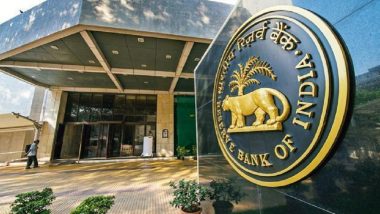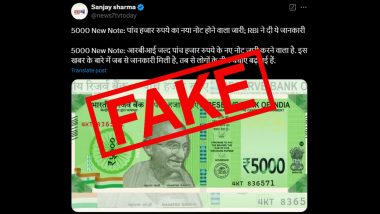Mumbai, November 19: Signalling a temporary truce, the Reserve Bank and the government on Monday agreed to refer to an expert committee the contentious issue of appropriate size of reserves that the RBI must hold, while restructuring of stressed loans of small businesses would be considered by the central bank. The setting up of the committee, whose members will be decided by the government and the RBI, followed a marathon nine-hour long meeting of the central board that discussed threadbare issues that had brought the central bank and the Finance Ministry at loggerheads.
"The Board decided to constitute an expert committee to examine the ECF, the membership and terms of reference of which will be jointly determined by the Government of India and the RBI," the central bank said in a statement. Currently, the capital base of RBI is Rs 9.69 lakh crore, and independent director and Swadeshi ideologue S Gurumurthy and the finance ministry have been wanting it to be lowered in line with global practices. The expert committee to be set up will now decide about the adequate size of capital base. MSME Credit: Reserve Bank of India Provides Special Training to 11,000 Bank Officers of Nearly 3,000 Branches.
The central board headed by RBI Governor Urjit Patel, which met amid the on-going tussle between the Finance Ministry and the central bank over various issues, discussed the Basel regulatory capital framework, a restructuring scheme for stressed MSMEs, bank health under Prompt Corrective Action (PCA) framework and the Economic Capital Framework (ECF). Patel and his deputies came face to face with government nominee directors -- Economic Affairs Secretary Subhash Chandra Garg and Financial Services Secretary Rajiv Kumar -- and independent members like S Gurumurthy to arrive at a middle ground on some of the contentious issues.
According to sources, no voting on any proposal took place and a detailed presentation was made by Deputy Governor N S Vishwanathan to the board. Vishwanathan is the incharge of banking regulation and supervision. The Board also advised that the RBI should consider a scheme for restructuring of stressed standard assets of MSME borrowers with aggregate credit facilities of up to Rs 25 crore, subject to such conditions as are necessary for ensuring financial stability. Most of the RBI's 10 independent directors, including Tata Sons Chairman N Chandrasekaran, attended the meeting that had drawn intense media and market attention.
With regard to banks under Prompt Corrective Action (PCA), it was decided that the matter will be examined by the Board for Financial Supervision (BFS) of the RBI. Of the 21 state-owned banks, 11 are under the PCA framework, which imposes lending and other restrictions on weak lenders. These are Allahabad Bank, United Bank of India, Corporation Bank, IDBI Bank, UCO Bank, Bank of India, Central Bank of India, Indian Overseas Bank, Oriental Bank of Commerce, Dena Bank and Bank of Maharashtra.
The PCA framework kicks in when banks breach any of the three key regulatory trigger points -- namely capital to risk weighted assets ratio, net non-performing assets (NPA) and return on assets (RoA). Globally, PCA kicks in only when banks slip on a single parameter of capital adequacy ratio, and the government is in favour of this practice being adopted for the domestic banking sector as well. The Board, while deciding to retain the capital adequacy ratio or CRAR at 9 per cent, agreed to extend the transition period for implementing the last tranche of 0.625 per cent under the Capital Conservation Buffer (CCB), by one year, that is up to March 31, 2020.
CCB currently stands at 1.875 per cent and remaining 0.625 per cent was to be met by March 2019, as per the deadline fixed by the RBI. According to sources, the next meeting of central board of the RBI is scheduled to be held on December 14. Amid growing tensions with the central bank, the Finance Ministry had sought discussions under the never-used-before Section 7 of the RBI Act which empowers the government to issue directions to the RBI Governor. RBI Deputy Governor Viral Acharya had in a speech last month talked about the independence of the central bank, arguing that any compromise could be "potentially catastrophic" for the economy.
In his first public comments since the spat between the RBI and the Finance Ministry came out in the open, Gurumurthy had last week said the stand-off "is not a happy thing at all". Gurumurthy, who was appointed to the board of RBI a few months back, had said the capital adequacy ratio prescribed in India is 1 per cent higher than the global Basel norms. He also pitched for easing lending norms for small and medium enterprises, which account for 50 per cent of the country's GDP.













 Quickly
Quickly





















